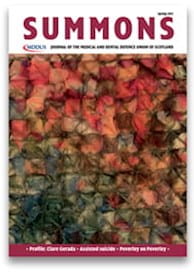WITH a budget of £100, Dr Beryl Corner established a premature baby unit in a tiny room in Southmead Hospital, Bristol in 1946. Only one other such unit existed in Britain at the time – in Birmingham – but this innovative project that promised great advances in neonatal care was greeted with hostility from the hospital’s obstetricians. Undeterred, Beryl finally won their support and admiration by halving the mortality rates for babies in the first year and for successfully caring for the world’s first quadruplets born by Caesarean in 1948.
The "Good quads" – Bridget, Frances, Elizabeth and Jennifer – became the focus of national and international media attention and earned Beryl worldwide acclaim for her groundbreaking work as a paediatrician. Three of the babies had been delivered easily but the fourth was not breathing. It was down to Beryl to find a way of bringing the child back to life. She explained: "We had no resuscitation equipment then such as we know it now. But I had a sucker that I sucked with a rubber tube down the baby's throat, and after about four or five minutes the baby cried and breathed; and she lived". Beryl nurtured the girls through their first months and stayed in touch with the Good family throughout her life.
An outstanding teacher, Beryl spent the majority of her career at the forefront of the development of paediatric medicine and made a significant contribution to modern neonatal care with her work on retinopathy of prematurity and kernicterus. Born in Bristol in December 1910, she qualified in 1934 at the Royal Free Hospital Medical School in London at a time when hospital boards refused to appoint women registrars and female consultants were thin on the ground. She was kept on as a house physician and then house surgeon before spending a year as a consultant paediatrician at Brompton Hospital from 1936 to 1937. She returned to Bristol Children’s Hospital where she spent the rest of her career.
Beryl’s career was an illustrious one and she earned many accolades. With the help of her team, she diagnosed and treated the first "rhesus baby" in 1943 and was one of the first four women to be admitted to the British Paediatric Association in 1945. She later became president of the paediatric section of the Royal Society of Medicine. In the early post-war years, she was paediatric consultant to Bristol Zoo where she contributed to the successful breeding programme for orangutans. This experience proved useful when setting up the premature unit at Southmead.
In 1959 she was one of the founders of the Neonatal Society which established the specialty as it is today. As part of a government committee on prematurity, she promoted premature baby units throughout Britain, extending their scope to help all babies born with health problems. She set up schemes in the late 1960s for specialist nurse training, published numerous research papers and three books on neonatal disease and even saved the life of television presenter Jill Dando when she suffered a heart disorder as a tiny baby. In 1967 she was elected to Fellowship of the Royal College of Physicians.
Beryl achieved extraordinary results in neonatal care despite the basic equipment available – in the 1940s there were no incubators, piped oxygen, plastic materials, electronic monitoring or micro-methods for biochemistry. But Beryl was never one to be defeated and improvised by adapting standard cots containing hot water bottles and a thermometer. She established meticulous aseptic nursing techniques and paid close attention to every detail of the babies' care.
She was also not afraid to break down barriers during her career. Small and fierce, Beryl championed women in the medical profession and helped female registrars by acting as their careers adviser from 1971 to 1988. Although she was tiny, she was known for her grit and determination and was not afraid to stand up to her male colleagues – even when they were twice her size. An obituary in the Independent described her as "bossy, difficult, bad-tempered, demanding and irascible. And yet her trainees loved working for her and held her in enormous respect and affection. Her peers adored her."
Beryl, who never had children of her own, continued working even after she retired, advising hospitals in India, serving as a magistrate and governor of her old school and as president of the Medical Women’s Federation. She played the violin, collected art and antiques and was appointed OBE in 2006 in recognition of her pioneering work.
In his tribute, Dr Martin Crossley Evans described Beryl as: “Generous with her praise, wise, warm, compassionate and gregarious, her many friends, while poorer for her passing, have been greatly enriched by her example of loyalty and dedicated service.”
This page was correct at the time of publication. Any guidance is intended as general guidance for members only. If you are a member and need specific advice relating to your own circumstances, please contact one of our advisers.
Read more from this issue of Insight

Save this article
Save this article to a list of favourite articles which members can access in their account.
Save to library